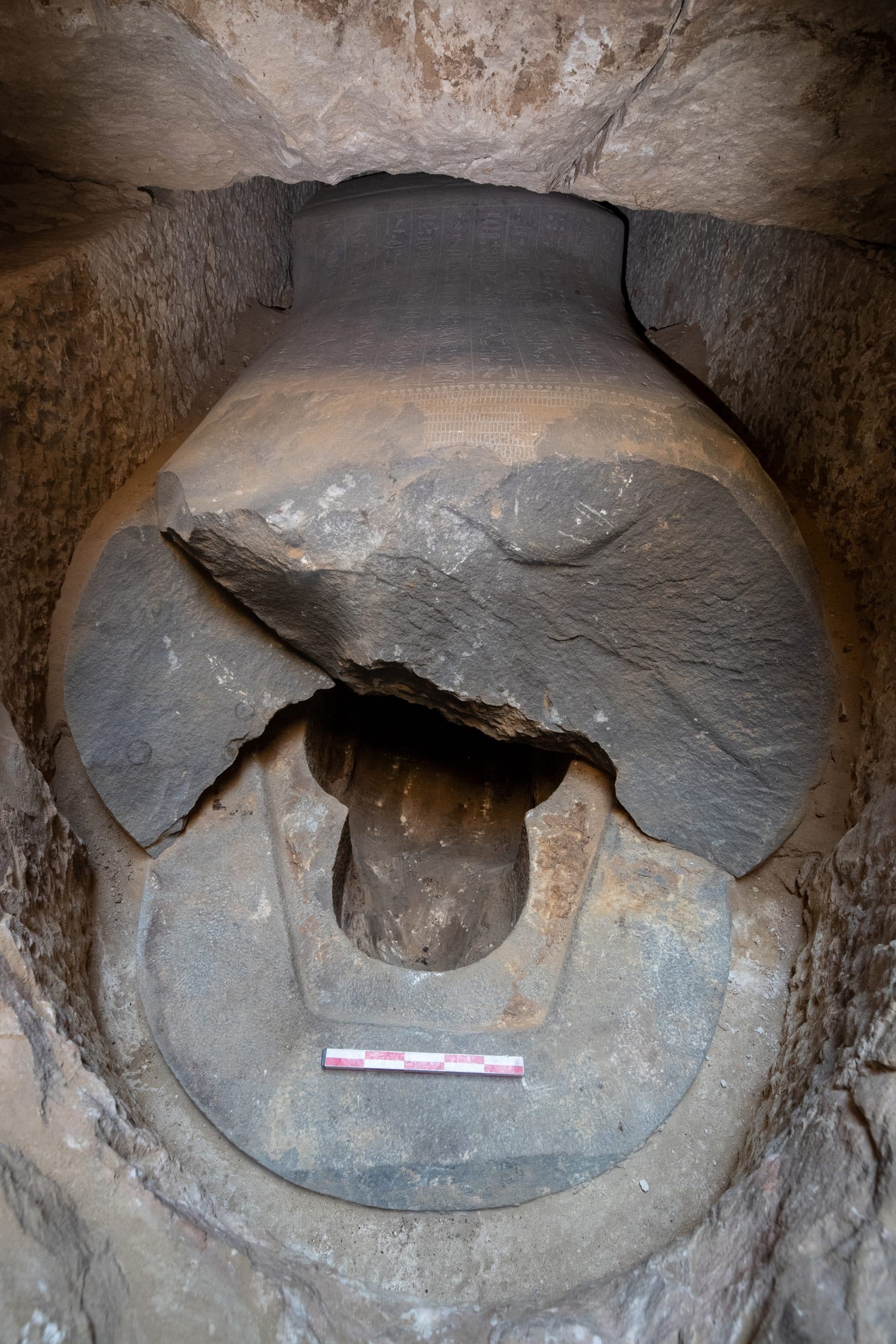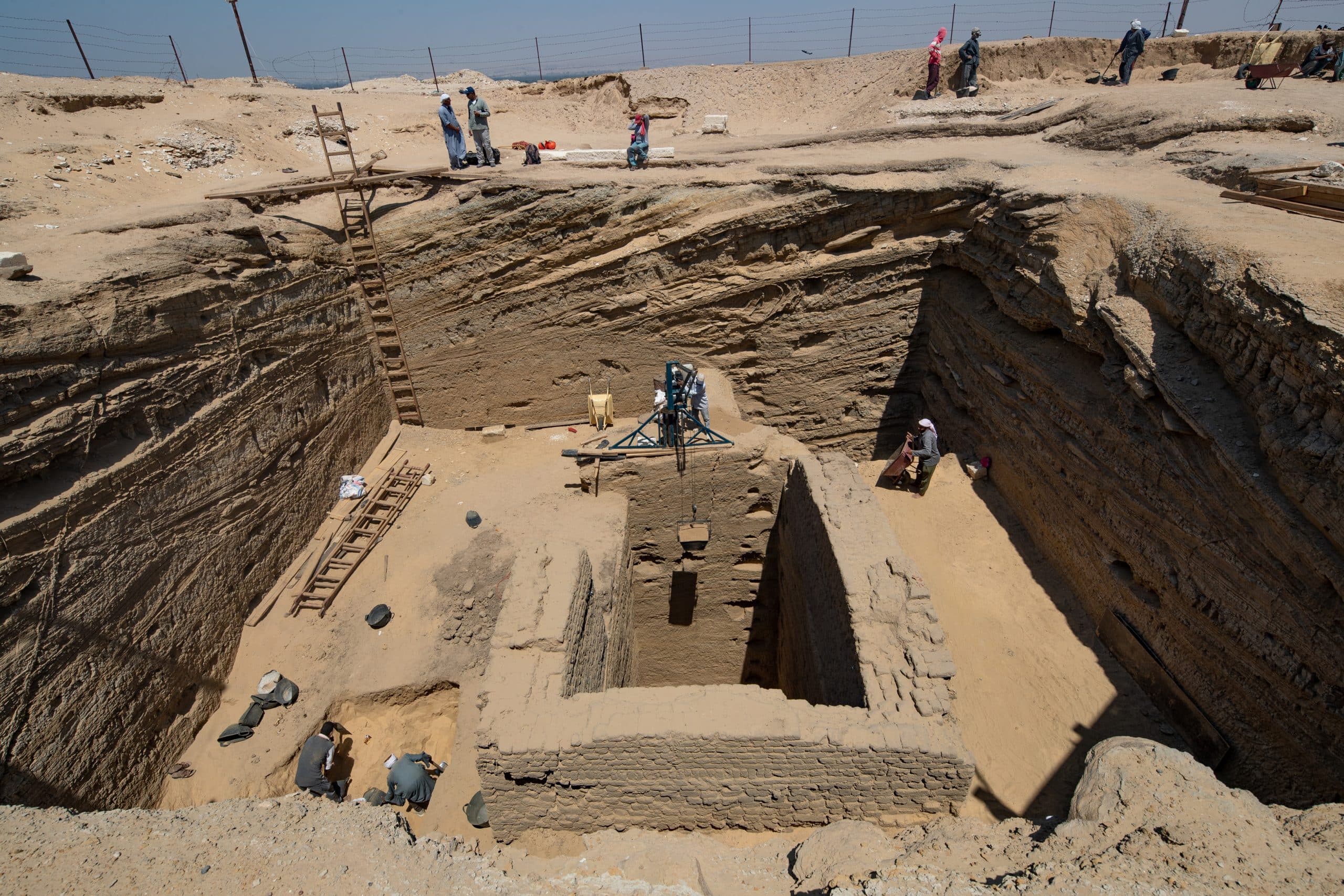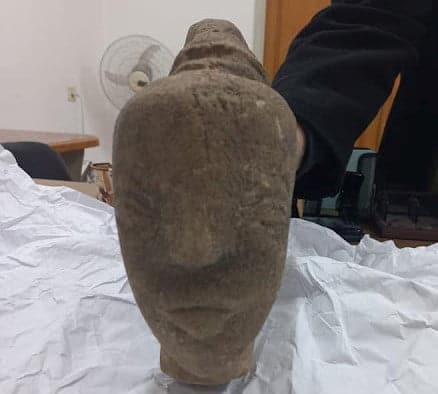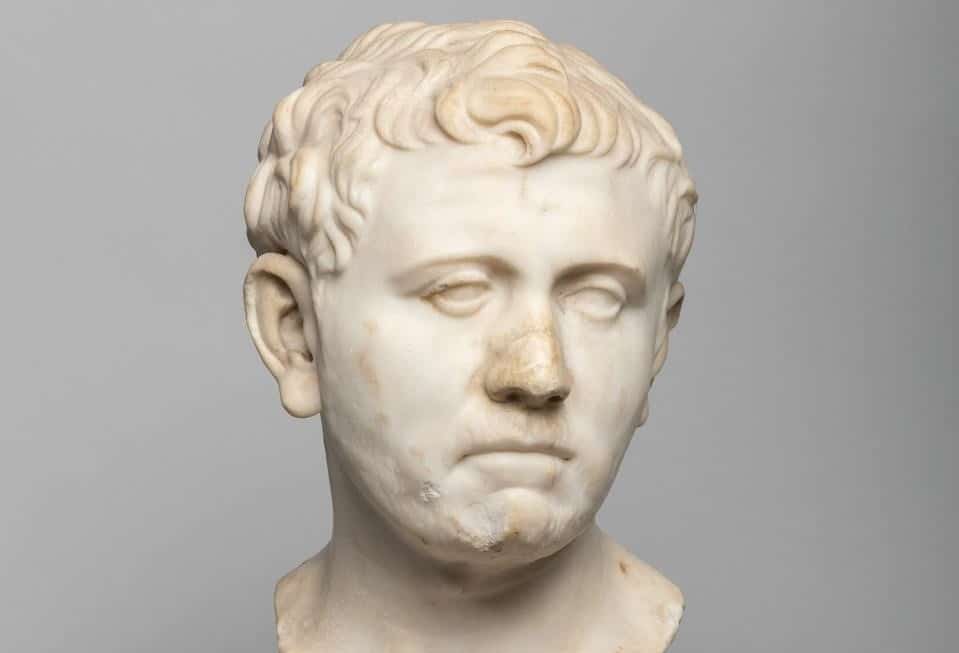His name was Wahibre-mery-Neith and he lived sometime in the fifth century B.C.E and held the title of “Commander of Foreign Mercenaries” with researchers from the Czech Institute of Egyptology saying he was in charge of Egyptian legionnaires in the Mediterranean and Asia Minor.
They believe that he died rather quickly because aspects of his chamber were not completed.
The initial discovery was made in 2021, where Egyptologists found the largest ever embalming cache which had more than 370 jars containing materials for the mummification process.
But details of Wahibre and his life are only just starting to surface.
His chamber measures at 6.5m x 3.3m with experts likening the structure to Campbell’s tomb found in Giza, however, unfortunately when archaeologists found his sarcophagus it was damaged.
“This finding proved that, unlike the embalming deposit, the tomb of Wahibre-mery-Neith has been robbed in late antiquity, most probably around 4th-5th century AD,” they said.

Other possessions were found in the tomb including 402 faience shabtis, which were small sculptures of slaves that would act as servants for the commander in the afterlife. Cups and two canopic jars plus several ostracon (shards of pottery used as a writing surface) were also discovered.
Experts say that while they didn’t uncover anything out of the ordinary, it still offers an important insight into that time period of ancient Egypt.
“It is unique and important, as it offers new insights into the troubled period of the beginning of Persian dominion in Egypt.
“It also shows us how the ancient Egyptians adapted the material culture of their religious beliefs under difficult circumstances and in times of crisis when the indigenous character of ancient Egyptian civilisation started to vanish.”






